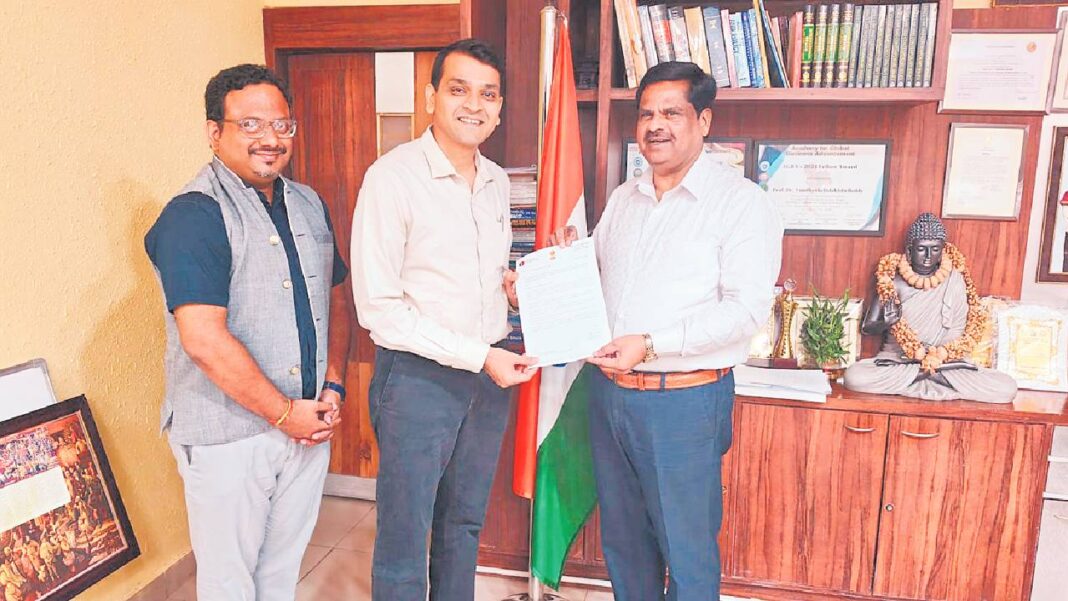PNS|Hyderabad
The Telangana Council of Higher Education (TGCHE) is moving ahead with two significant collaborations aimed at enhancing innovation ecosystems and expanding global academic opportunities for students across the State, especially those from rural and aspirational districts.
In separate meetings held on Tuesday, Prof V Balakista Reddy, Chairman of TGCHE, met with top representatives from both the All India Council for Technical Education (AICTE) and the College Board India, laying the groundwork for potential Memorandums of Understanding (MoUs).
Dr Yogesh Brahmankar, Director (Innovation), Ministry of Education, New Delhi, held discussions with TGCHE on fostering a regional innovation ecosystem within institutions of higher education.
The proposed MoU with AICTE focuses on several key areas Promoting innovation, incubation and entrepreneurship in higher education institutions; offering tailored fellowship schemes for eligible students from Telangana; launching capacity-building initiatives for students and faculty; creating regional innovation clusters and labs, particularly in rural institutions.
Prof Reddy expressed strong support for the initiative, emphasising its potential impact in underserved districts. He also urged AICTE to establish dedicated centres in Tier 2 and Tier 3 regions to broaden access to innovation-related opportunities.
In a parallel development, Meenakshi Kachroo Chatta, Senior Director for India, South and Central Asia at College Board India, met with Prof. Reddy to discuss an MoU that would integrate SAT testing into Telangana’s higher education admission landscape.
The collaboration proposes SAT score acceptance for undergraduate admissions across conventional universities in Telangana.
Significant fee waivers: 90 per cent discount for students from families earning less than Rs 8 lakh annually, and 50 per cent for those between Rs 8 lakh and Rs 15 lakh.
Streamlining the admission process by reducing the need for multiple entrance exams and enhancing global competitiveness and easing access to international education were also discussed.
Prof Reddy welcomed the initiative, calling it a progressive step toward making higher education more accessible. “We aim to reduce barriers for our students while opening both domestic and international opportunities,” he said.




